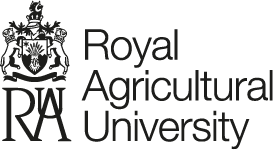Response of Cyclopia subternata to drought stress � assessment of leaf composition, proteomics and product quality
Mabizela, G S, van der Rijst, M, Slabbert, M M, Mathabe, Patricia, Muller, M, de Beer, D, Stander, M, Colling, J, Walczak, B, Joubert, E and Bester, C (2023) Response of Cyclopia subternata to drought stress � assessment of leaf composition, proteomics and product quality. South African Journal of Botany, 161. pp. 96-112.
|
Text
1-s2.0-S0254629923004295-main.pdf - Published Version Available under License Creative Commons Attribution. Download (2MB) | Preview |
Abstract
Honeybush tea is made from the fynbos plant Cyclopia subternata, which is unique to South Africa. Cultivation takes place in its natural environment, which has a Mediterranean climate with dry summers and wet winters. During the summer, the plant is vulnerable to drought, an abiotic stress factor that is likely to affect its development and yield. This study investigated the effect of drought stress for a short duration on the leaf, as well as the quality of the herbal tea. Protein expression in the leaf was measured to gain insight into possible mechanisms used by the plant to cope with drought stress conditions. Fifteen-month-old C. subternata plants were subjected to three water treatments (control, moderately-stressed (MS), and severelystressed (SS)) for ten days. Leaves were sampled at regular intervals throughout the treatment period to determine their relative water content (RWC). Leaves were also sampled on the 11th day for untargeted and targeted chemical composition and protein expression analyses. The remaining leaves and stems were processed to obtain the herbal tea. Descriptive sensory analysis of the herbal tea was performed to determine whether drought stress affected product quality. RWC was substantially higher (p < 0.05) in the control plants (100%) than in the MS and SS treated plants (83�90% and 47%, respectively). Untargeted analysis revealed that drought stress considerably altered leaf chemical composition. According to targeted analysis, the proline content of SS treated plants increased more than 40-fold when compared to the control, however, the treatments had no effect on the total carbohydrate and major phenolic compound content of the leaves, nor on the sensory quality of the herbal tea. Differences in the expression of 27 proteins, 24 of which were identified using proteomic analysis, were observed. During drought stress, 17 of these proteins increased, whereas seven decreased. Thirteen of the 24 identified proteins produced statistically significant results based on their Byonic scores. The findings laid the foundation for future research into the functions of drought response genes in Cyclopia species, as well as helping with the identification of stress-tolerant honeybush genotypes.
| Item Type: | Article |
|---|---|
| Keywords: | Carbohydrates Cyclopia subternata Drought response Herbal tea Polyphenols Proline Two-dimensional polyacrylamide gel electrophoresis Relative water content Sensory profile |
| Divisions: | Agriculture, Food and Environment |
| Depositing User: | Patricia Mathabe |
| Date Deposited: | 11 Aug 2023 15:42 |
| Last Modified: | 11 Aug 2023 15:42 |
| URI: | https://rau.repository.guildhe.ac.uk/id/eprint/16588 |
Actions (login required)
 |
Edit Item |

